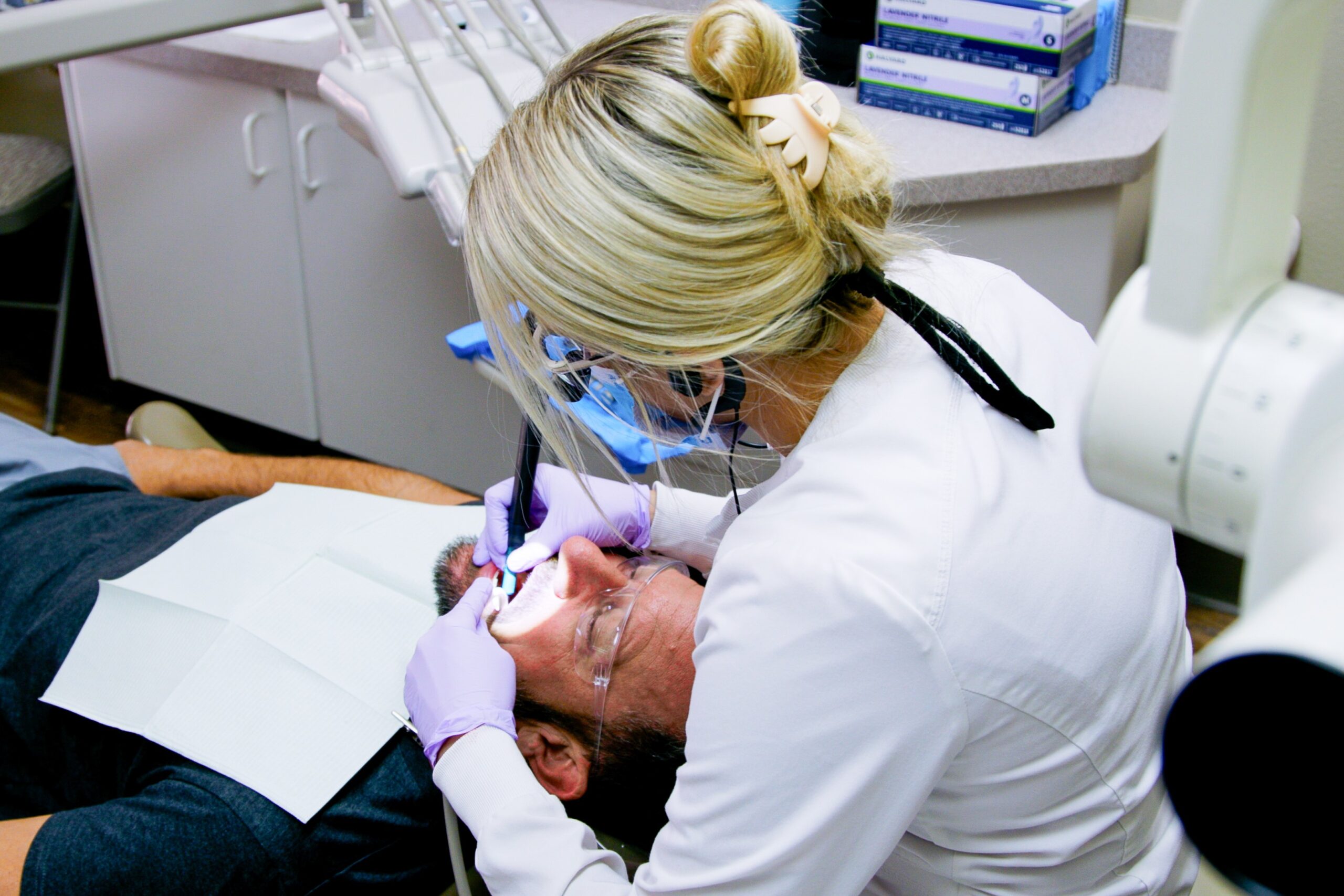 If you have recently had a tooth extraction you may be wondering, what is a dry socket? Dry socket is a painful condition that can occur after you have had a tooth extracted.. If you are experiencing pain following a tooth extraction, it is important to see your dentist as soon as possible to determine if you are suffering from this complication. In this blog post, we will discuss what causes dry sockets, symptoms, risk factors for developing them, treatment options, and how to prevent them from occurring.
If you have recently had a tooth extraction you may be wondering, what is a dry socket? Dry socket is a painful condition that can occur after you have had a tooth extracted.. If you are experiencing pain following a tooth extraction, it is important to see your dentist as soon as possible to determine if you are suffering from this complication. In this blog post, we will discuss what causes dry sockets, symptoms, risk factors for developing them, treatment options, and how to prevent them from occurring.
What is a Dry Socket?
Dry socket is a serious complication that can occur after a tooth is extracted. The sockets, which are the holes in your gums where your teeth used to be, are lined with what is called a blood clot. This blood clot helps to protect the nerves and bone underneath. However, if the blood clot becomes dislodged or dissolves too early, the result is what is known as a dry socket. They are extremely painful and can delay the healing process. This condition is more common in certain situations, such as if the extraction was particularly difficult. In most cases, the condition will resolve on its own within a week or two. However, in some cases, persistent pain may require further treatment from a dentist or oral surgeon.
How Do I Know If I Have A Dry Socket?
If you’ve had a tooth extracted, it’s normal to experience some discomfort and soreness afterward. However, in some cases, what’s known as a dry socket can occur. This is when the blood clot that forms in the extraction site becomes dislodged or dissolves, exposing the bone and nerves. Typcially happening 3-5 days after the extraction. This is painful condition-= can make it difficult to eat or drink. Here are some signs that you may have this complication:
Persistent pain that gets worse, rather than improving
Pain that radiates from the extraction site to your ear, eye, temple, or neck
Bad breath or an unpleasant taste in your mouth
Exposed bone or nerves at the extraction site
Swelling around the extraction site
The area is tender to touch
Increased sensitivity to hot and cold temperatures
If you’re experiencing any of these symptoms, it’s important to see your dentist right away. They’ll be able to clean out the socket and provide relief from the pain.
Dry Socket Risk Factors
Dry sockets are more common in smokers and people with sub-par oral hygiene. Logically speaking, smoking complicates almost any dental procedure because it introduces chemicals into your mouth that can disrupt the normal healing process. Using birth control pills is also a risk factor. The Journal of the American Dental Association reports that women using the pill are almost twice as likely to develop a dry socket. The pill elevates a woman’s estrogen levels, which can inhibit clotting. Other risk factors include having wisdom teeth removed, poorly fitting dental appliances, eating or drinking carbonated beverages, and using a straw soon after tooth extraction.
How Do I Prevent Dry Sockets?
The best way to prevent dry sockets is to follow your dentist’s post-operative instructions carefully. This includes avoiding spitting, avoiding vigorous exercise, drinking from a straw, and smoking. Additionally, it’s important to keep the extraction site clean by gently rinsing with water and brushing your teeth as usual. It’s also critical to eat soft foods. You should avoid eating hard, crunchy, or sticky foods until the socket has healed. If you do develop a dry socket, your dentist can prescribe medication to help relieve the pain and promote healing.
Dry Socket Treatment
In most cases, dry sockets can be successfully treated with simple home care remedies or over-the-counter pain medication. However, in some cases, more aggressive treatment may be necessary. More severe cases are treated by cleaning out the affected socket and then packing it with gauze or medicated dressings. This packing material helps to keep food and bacteria out of the socket and also provides some pain relief. The dressing will need to be changed every few days until the pain subsides and healing is complete. In some cases, antibiotics may also be prescribed to help prevent infection. With proper treatment, dry sockets typically heal without any complications in a week or two. If you think you might have a dry socket, it’s important to see your dentist as soon as possible so they can clean the site and provide relief from the pain. Here at St. George Dental Care, we are happy to help and take pride in caring for our patients.
Contact St. George Dental Today
At St. George Dental, we believe that everyone deserves a healthy and beautiful smile. Our team of experienced dentists and dental hygienists are dedicated to providing high-quality care in a comfortable and relaxed environment. We offer a full range of services, from preventive care to cosmetic dentistry. We also offer convenient financing options to make dental care affordable for everyone. So if you’re looking for a new dentist, or if you just have a question about your oral health, don’t hesitate to contact us today. We’ll be happy to answer your questions and help you find the dental solution that’s right for you.


